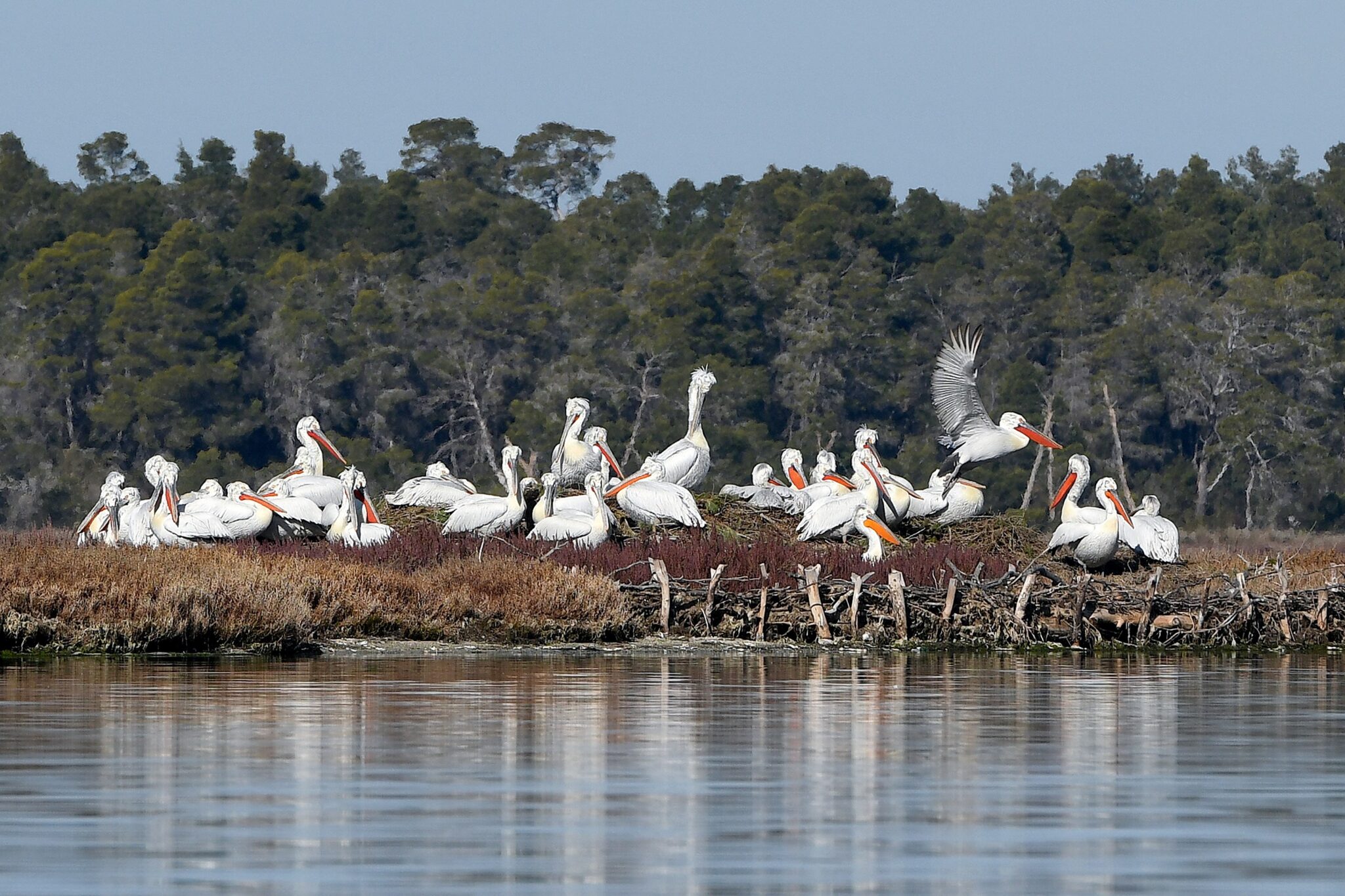
Climate change, overfishing or urbanization, migratory birds are disrupted and thousands are missing in the Albanian lagoon of Divjaka, a spectacular expanse of swamps and islets on the Adriatic Sea where birds are used to survive the winter.
Specialists are sounding the alarm after recently conducting censuses in this region separated from the sea by a strip of sand, as part of a global program designed to better understand populations.
“We found that about 9,000 waterfowl (out of 25,000) are missing compared to the previous year. The reasons are many, but above all, it is global warming that has disrupted the migration and breeding seasons. †
Ardian Koçi, director of the national park protecting the lagoon valued by many migrants
Nexhip Hysolokaj, another expert, points out that this is an underlying trend. “For three years now, we have seen a decline in the number of migratory birds in Albania due to climate change.”
A more in-depth study is needed to know the precise reasons for the changes in the trajectories and behavior of the different species. But experts note that some migrants no longer have to spend the winter warm in the small Balkan country.
The airport
“If it’s not too cold, there are no extreme temperatures in Northern Europe, they prefer not to move or migrate over shorter distances”as explained inAFP Mirjan Topi, author of the first guide to the birds of Albania. For instance “they can stop to winter in neighboring Montenegro so as not to come to Albania”.
Under the quasi-disappeared winter in Albania, the greylag geese, the buck geese or the buck geese. Djvijaka Lagoon is famous for its graceful pink flamingos and Dalmatian pelicans, so named because of the feathers that make them look like they are wearing a wig.
There are also fewer today and breeding cycles are disrupted by climate change. “Pelican breeding season seems late compared to last year”explains Sajmir Hoxha, an expert in Albania from the French NGO Noe Conservation.
It also includes illegal fishing that depletes fish stocks, human activities or uncontrolled urbanization that threatens ecosystems.
And the situation is not expected to improve with a controversial project to build an airport in the protected region of Vjosa-Narta, further south, intended to develop tourism but frowned upon by environmentalists. This project of more than 100 million euros entrusted to a Turkish-Swiss consortium “would directly affect wildlife and threaten species that reproduce, hibernate or stop there on their way to Divjaka“, says Mirjan Topi.
(AFP)